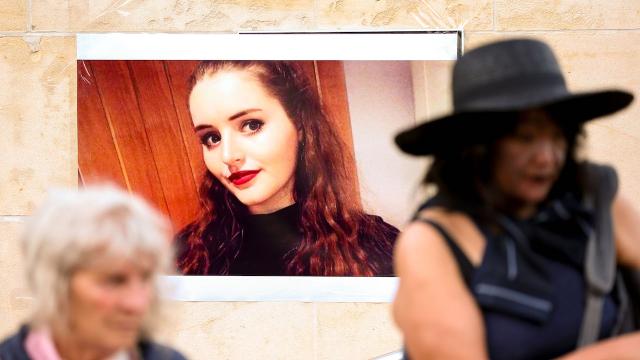Government officials in New Zealand are angry and considering their legal options after Google sent newsletter subscribers information about a murder case last year.
The information, including the name and photo of the 27-year-old man accused of the murder, is currently banned from publication in New Zealand, a common practice in some countries where the theory is that suspects can’t receive a fair trial under too much media scrutiny.
The case involves the death of Grace Millane, a 22-year-old British tourist who disappeared in Auckland on 1 December 2018, generating international attention. A week later, the unnamed man was charged with her murder and Millane’s body was found the next day along a roadside.
Google subsequently sent out a British news story about the accused man that called him out by name and showed his photo in a “what’s trending in New Zealand” email.
New Zealand’s Justice Minister Andrew Little said that the email violated the court’s suppression order against publishing information about the suspect because it reached subscribers in New Zealand. And he isn’t happy about any of it.
[referenced url=”https://gizmodo.com.au/2019/06/neo-nazi-sentenced-to-21-months-in-prison-for-sharing-video-of-mosque-massacre-and-calling-it-awesome/” thumb=”https://i.kinja-img.com/gawker-media/image/upload/t_ku-large/jgjuzuhbjaj2dlihyzql.jpg” title=”Neo-Nazi Sentenced To 21 Months In Prison For Sharing Video Of Mosque Massacre And Calling It ‘Awesome’” excerpt=”Philip Arps was sentenced in a New Zealand court today for sharing video of the Christchurch massacre, a terrorist attack on two mosques that killed 51 people on March 15. Arps, who has compared himself favourably to Adolf Hitler’s deputy Rudolf Hess, pleaded guilty to two counts of sharing the video and received a sentence of 21 months in prison for sending it to roughly 30 people.”]
“Officials from the Ministry of Justice first reached out for an update from Google in March this year, following on from the December 2018 meeting I had with Google. Upon receiving no response, they again chased up this week,” Little told Gizmodo by email.
“The response received is unsatisfactory,” Little continued. “Google’s contempt for New Zealand law, and for Grace Millane’s family is unacceptable, and I will now be considering my options.”
Google gave assurances to New Zealand Prime Minister Jacinda Ardern back in January that the tech giant would examine the issue, according to the New Zealand Herald. But the company doesn’t plan to change any of its processes to make sure that it doesn’t happen again.
“Google respects New Zealand law and understands the sensitivity around this issue. When we receive valid court orders, including suppression orders, we review and respond appropriately,” a Google spokesperson told Gizmodo via email.
Curiously, Google says that it didn’t receive the suppression order until four days after it was granted. When asked about this delay, Justice Minister Little told the New Zealand Herald that he didn’t know why that was.
The case is a perfect example of the problems that arise from building an international information network such as the internet when laws and accepted media norms can differ drastically from region to region. New Zealand has a tradition of freedom of speech, but it also has more restrictive laws for the media than are generally accepted in the US.
Politicians in New Zealand have become especially sensitive to issues around the distribution of sensitive information and the global tech giants after a terrorist attack in Christchurch last year that killed 51 people at two mosques.
The accused white supremacist terrorist, a 28-year-old Australian national, livestreamed his attack for 17 minutes on Facebook and it was shared far and wide on the internet. New Zealand’s official censor banned the video as well as the terrorist’s manifesto.
One man, a 44-year-old business owner with neo-Nazi sympathies, has already been sentenced to 21 months in prison for sharing the video with roughly 30 people and calling it “awesome”.
Prime Minister Ardern put forward a non-binding statement in partnership with other countries asking for “enhanced cooperation” in order to “eliminate terrorist and violent extremist content online”. Big tech companies such as Facebook, Twitter, Google, Microsoft and Amazon all supported the so-called Christchurch Call, but the Trump regime has refused to endorse it.
“This might be the way of the world and modern technology, but the reality is that we cannot surrender the effective administration of justice to algorithms and machines and say, ‘Well, that’s it, it’s all over for fair trial rights.’ We cannot allow that to happen,” Little told the Herald.
